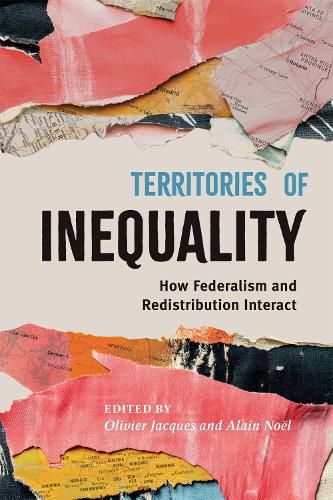Readings Newsletter
Become a Readings Member to make your shopping experience even easier.
Sign in or sign up for free!
You’re not far away from qualifying for FREE standard shipping within Australia
You’ve qualified for FREE standard shipping within Australia
The cart is loading…






The rise of income and wealth inequality and the possibilities of redistribution animate contemporary social and political debates, but much of the scholarship on the issue is limited to the individual level. There is a spatial dimension to the redistribution of income, however, and in federations, this is especially important.
In Territories of Inequality leading political scientists propose a territorial approach to inequality and redistribution, informed by political economy, political geography, and a comparative analysis of federalism and multilevel governance. Chapters explore the relationship between interpersonal and interregional redistribution, the role of progressive or regressive governing coalitions, and the foundations of individual preferences for or aversions to interregional redistribution. They consider different federations and quasi-federations and emphasize the unique situation of Indigenous Peoples, who navigate a complex relationship with institutions shaped by colonialism.
Examining how decentralization and federalism influence policy outcomes and public preferences, Territories of Inequality provides new ways to approach the question of redistribution.
$9.00 standard shipping within Australia
FREE standard shipping within Australia for orders over $100.00
Express & International shipping calculated at checkout
The rise of income and wealth inequality and the possibilities of redistribution animate contemporary social and political debates, but much of the scholarship on the issue is limited to the individual level. There is a spatial dimension to the redistribution of income, however, and in federations, this is especially important.
In Territories of Inequality leading political scientists propose a territorial approach to inequality and redistribution, informed by political economy, political geography, and a comparative analysis of federalism and multilevel governance. Chapters explore the relationship between interpersonal and interregional redistribution, the role of progressive or regressive governing coalitions, and the foundations of individual preferences for or aversions to interregional redistribution. They consider different federations and quasi-federations and emphasize the unique situation of Indigenous Peoples, who navigate a complex relationship with institutions shaped by colonialism.
Examining how decentralization and federalism influence policy outcomes and public preferences, Territories of Inequality provides new ways to approach the question of redistribution.